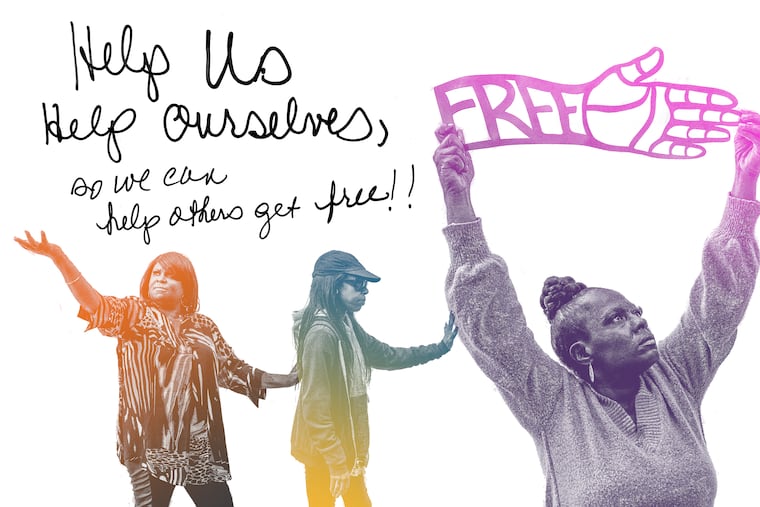To truly reform criminal justice, women need more access to diversion programs | Opinion
Reentry and criminal justice reform efforts have historically focused on men.

Growing up in Philadelphia, I witnessed the loving, hard-working, skilled women in my family and neighborhood struggle to secure employment and care for their families because of their criminal records. These women were capable of running their own beauty salons, daycares, or home care agencies. However, they were locked out of these opportunities because of their criminal records. As an attorney at Community Legal Services (CLS), I now advocate for women and girls with records to be able to overcome barriers to employment.
People with criminal records generally experience unemployment at five times the rate of the population as a whole. They are also shut out of housing and educational opportunities. With more and more women serving as head of their households, their families are particularly impacted by the pervasive use of criminal records in hiring decisions. Over two-thirds of incarcerated women are also mothers, and many are the sole wage-earners for their families. If women are denied the opportunity to further their education or secure gainful and meaningful employment because of their records, we entrap entire families in poverty, possibly for generations.
» READ MORE: Hundreds are being released from jail during the coronavirus pandemic. But where are they going?
Despite all of this, historically, reentry and criminal justice reform efforts are focused on men. Diversion programs are no exception. Diversion programs divert individuals who come into contact with the justice system away from traditional court trial and sentencing proceedings, instead requiring participation in community service, treatment, and other programming aimed at rehabilitation. Often when programs are completed, the cases can then be expunged, which allows people who have been incarcerated to move forward with their lives.
Women must have better access to these programs, and the programs must be designed for women to be able to complete them successfully. As part of the Incarcerated Women’s Working Group, I recently interviewed women who have been incarcerated to hear directly from them what they would have needed to have better outcomes and their experienced and recommendations are outlined a new report.
The report calls for diversionary programs to recognize the unique experiences and needs of women who have contact with the criminal system, to center and compensate directly impacted women in designing and creating programs, and to offer effective community-based gender and trauma responsive services that recognize the individual needs, strengths, and agency of women.
The report also calls for the removal of barriers to the current diversionary programs that exist so that women have expanded access to diversion and are set up to succeed in diversionary programs. For example, programs should not require payment of exorbitant court fines and costs, include lengthy probation terms, or include many program requirements that are infeasible, particularly for women who are caregivers. Programs must provide transportation and childcare support or accommodations so that people are not boxed out due to financial or time constraints. Programs must include expungement of records, or avoid creating records in the first place, in order to avoid perpetual punishment and devastating economic consequences.
» READ MORE: The nation’s oldest juvenile lifer, Joe Ligon, left a Pa. prison after 68 years
This is how we heal communities, through thoughtful and targeted programming.
The City of Philadelphia, the District Attorney’s Office, the Department of Probation, and other city leaders have already expressed commitment to many of the principles and policies outlined in this report, and we hope that our recommendations for the existing programs will provide a roadmap to increasing access, equity, and effectiveness.
There is a lot of movement right now around dignity for women. Dignity means enabling and empowering women and girls of color with criminal records to reach their highest potential by broadening career pathways and fully valuing all work in our society. This is what we all need to maintain vibrant, healthy, safe, and inclusive communities.
Tracie Johnson is a Staff Attorney in the Employment Unit and on the Youth Justice Project at Community Legal Services where she continues to help women and girls overcome legal barriers to accessing employment and higher education due to their criminal and juvenile records.